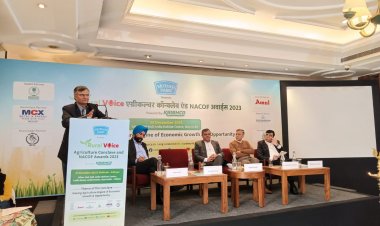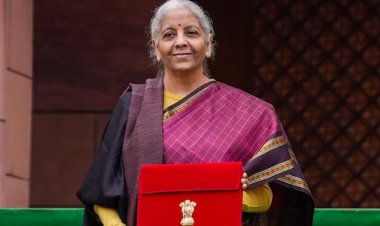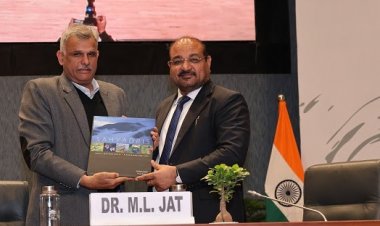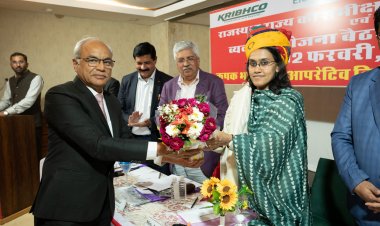Rural India still awaits basic infrastructure and services
“Agenda of Rural India”, organized by Rural Voice and Socratus, the extensive discussions and insights gleaned from the five regional convenings, which collectively laid the foundation for framing the Agenda for Rural India, have prominently stated the need for bolstering and enhancing rural infrastructure. This critical imperative extends to various sectors, including health and education, transportation and energy accessibility. The following are the findings related to challenges regarding lack of infrastructure in rural areas.

“Agenda of Rural India”, organized by Rural Voice and Socratus, the extensive discussions and insights gleaned from the five regional convenings, which collectively laid the foundation for framing the Agenda for Rural India, have prominently stated the need for bolstering and enhancing rural infrastructure. This critical imperative extends to various sectors, including health and education, transportation and energy accessibility. The following are the findings related to challenges regarding lack of infrastructure in rural areas.
Rural Road Connectivity: More than one-fourth of the participants during the polling stressed the importance of improving road networks, footpaths, streetlights, and drainage systems throughout rural areas in Meghalaya. In both Meghalaya and Uttar Pradesh (UP), the consensus that emerged during the polling exercise highlighted a shared demand for the enhancement of high-quality road infrastructure, especially to connect farms and streamline transportation to and from agricultural markets (mandis).
Read This Also: Agriculture needs hand holding now: Existential crisis for rural India
Health Infrastructure: The state of healthcare in rural India has a direct impact on the lives and livelihoods of millions of rural residents. In both Uttar Pradesh and Meghalaya, participants voiced their concerns about the inadequacy of health infrastructure, including non-functional Primary Health Centers (PHCs) and Community Health Centers (CHCs).
A significant number of participants in Uttar Pradesh, Odisha, and Meghalaya expressed that they would choose their future leaders if the promises made regarding the fulfillment of well-equipped, affordable, and easily accessible healthcare facilities (including hospitals and PHCs) were upheld.
Also Read This: No More Blue Skies: Rural India's Pollution & Climate Battle
Education Infrastructure: The state of educational infrastructure in rural India directly influences access to quality education and, by extension, the socio-economic development of the country. Rural youth in Uttar Pradesh do not receive adequate skills and technical education as echoed by a social worker from Muzzafarnagar , and the quality of primary and higher education in rural regions of Odisha, Rajasthan, Meghalaya, and Uttar Pradesh is deteriorating.
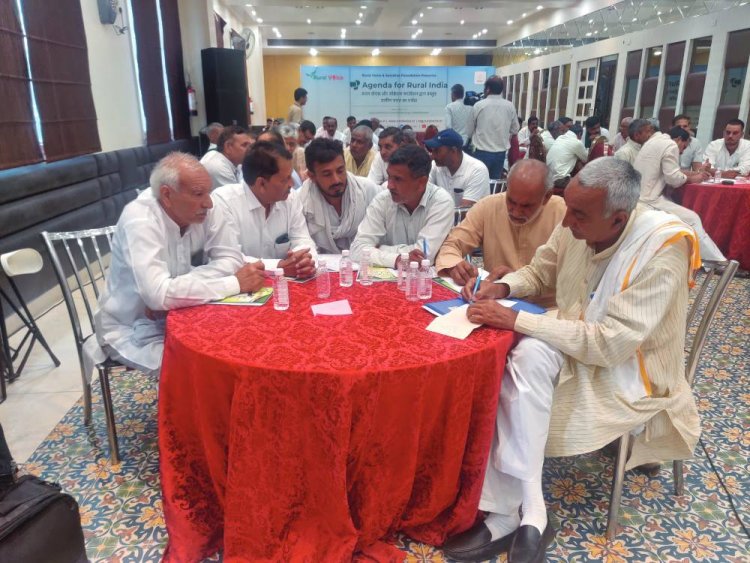
A participant from East Khasi Hills, stated that ‘there is a high dropout rate across primary to middle school’. Furthermore, there is insufficient focus on imparting practical skills, such as those related to agriculture.
The poll promises that garnered votes from attendees in Odisha primarily centered on promoting farmer's education through training programs. Alternatively, in Meghalaya, a substantial portion of participants expressed their preference for election promises related to education infrastructure and achieving uniformity in delivering high-quality education up to the collegiate level.
Read This Also: Agenda for Rural India: Agriculture- Difficult Harvests
Energy Infrastructure: Residents of Meghalaya, Tamil Nadu and Odisha have conveyed that power cuts and load shedding have had adverse effects on their daily lives, emphasizing the necessity for the state government to implement measures to ensure uninterrupted 24-hour electricity supply. In Uttar Pradesh, increasing electricity tariffs was cited as a concern by a farmer from Baghpat district.
Read This also: Agenda for Rural India: Unemployed- Choice or Compulsion?
The participants in Odisha had stated that they would vote for leaders who would help promote and turn to renewable energy sources, particularly solar power, to reduce their reliance on fossil fuels. The development of energy infrastructure in rural areas of India is a crucial step toward achieving balanced, inclusive, and sustainable growth.
Conclusion: The insights shared by local communities, farmers, teachers, artisans, and others have provided invaluable contributions in shaping a rural India infrastructure agenda. By channeling investments into essential areas such as healthcare, education, transportation, energy access, we not only address immediate needs but also set in motion a series of transformative changes that profoundly impact the welfare of rural communities.
(The author is Senior Program Manager with Socratus.)



 Join the RuralVoice whatsapp group
Join the RuralVoice whatsapp group

















